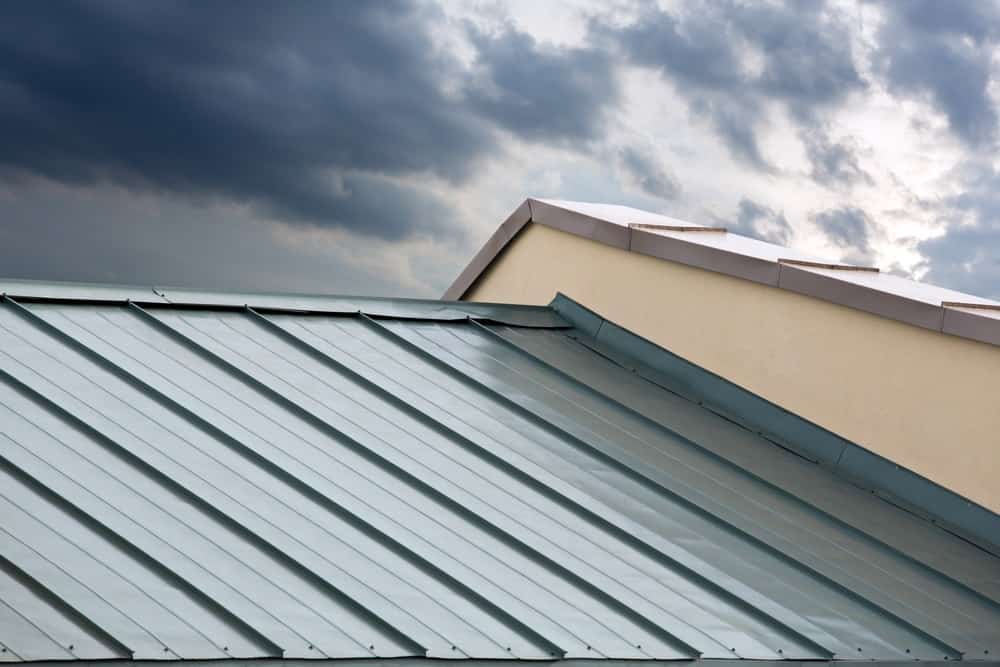Metal roofs have gained popularity in recent years due to their durability, energy efficiency, and aesthetic appeal. However, there’s a common misconception that metal roofs can be noisy during rain or hailstorms. In this article, we will explore the question, “Do metal roofs make noise?” and separate the myths from the facts surrounding this topic.

Understanding Metal Roofing
Before we delve into the noise aspect, it’s important to understand the characteristics of metal roofing that make it a desirable choice for many homeowners:
- Durability: Metal roofs are known for their longevity, often lasting 40 to 70 years or more. They can withstand harsh weather conditions, including rain, snow, and hail.
- Energy Efficiency: Many metal roofing materials are designed with energy efficiency in mind. They reflect solar heat, keeping your home cooler in the summer and reducing energy costs.
- Low Maintenance: Metal roofs require minimal maintenance, as they are resistant to issues such as rot, mildew, and insect infestations.
- Aesthetic Appeal: Metal roofing comes in a variety of styles, colors, and finishes, allowing homeowners to choose a design that complements their home’s architecture and their personal preferences.
The Noise Myth
One of the most common misconceptions about metal roofs is that they are noisy. People often associate metal with a loud clattering sound when rain or hail hits the surface. While this may be true for some types of metal roofing, it’s important to note that not all metal roofs are created equal, and advancements in roofing technology have led to quieter options.
Understanding Noise Factors
Whether a metal roof makes noise depends on several factors:
- Roof Design: The design of the roof can affect noise levels. A steeply pitched roof with an attic space can absorb sound better than a flat roof with no attic.
- Roofing Material: The type of metal roofing material matters. Thicker roofing materials and those with sound-deadening features, such as insulation, tend to be quieter.
- Underlayment: The underlayment beneath the metal roofing plays a role in noise reduction. Some underlayments are designed to dampen sound and provide additional insulation.
- Fasteners: The method of fastening the metal roofing can impact noise. Directly attaching metal panels to the roof deck without any insulation can result in more noise compared to using a sound-absorbing underlayment or insulation.
The Facts About Metal Roof Noise
Now that we’ve discussed the factors that influence noise levels, let’s separate fact from fiction:
- Rain Noise: Metal roofs can produce noise when raindrops hit the surface. However, the level of noise is often compared to the soothing sound of rainfall on other roofing materials like asphalt shingles. Some homeowners even find it pleasant.
- Hail Noise: Hail hitting a metal roof can produce a louder sound compared to rain. However, modern metal roofing materials are designed to withstand hail impact without significant noise.
- Noise Reduction: To further reduce noise, you can install additional insulation or opt for thicker metal roofing materials. These options can significantly dampen sound and make your metal roof quieter.
Conclusion
So, do metal roofs make noise? The answer is yes, but the noise levels are often exaggerated in popular myths. Modern metal roofing technology has made significant advancements in noise reduction, and homeowners can enjoy the benefits of a durable, energy-efficient, and aesthetically pleasing roof without excessive noise concerns. If you’re considering a metal roof and are worried about noise, discuss your options with a roofing professional who can recommend materials and solutions that align with your preferences and comfort. Ultimately, the noise from a metal roof is usually less of a concern than the many advantages it brings to your home.



Leave a Reply